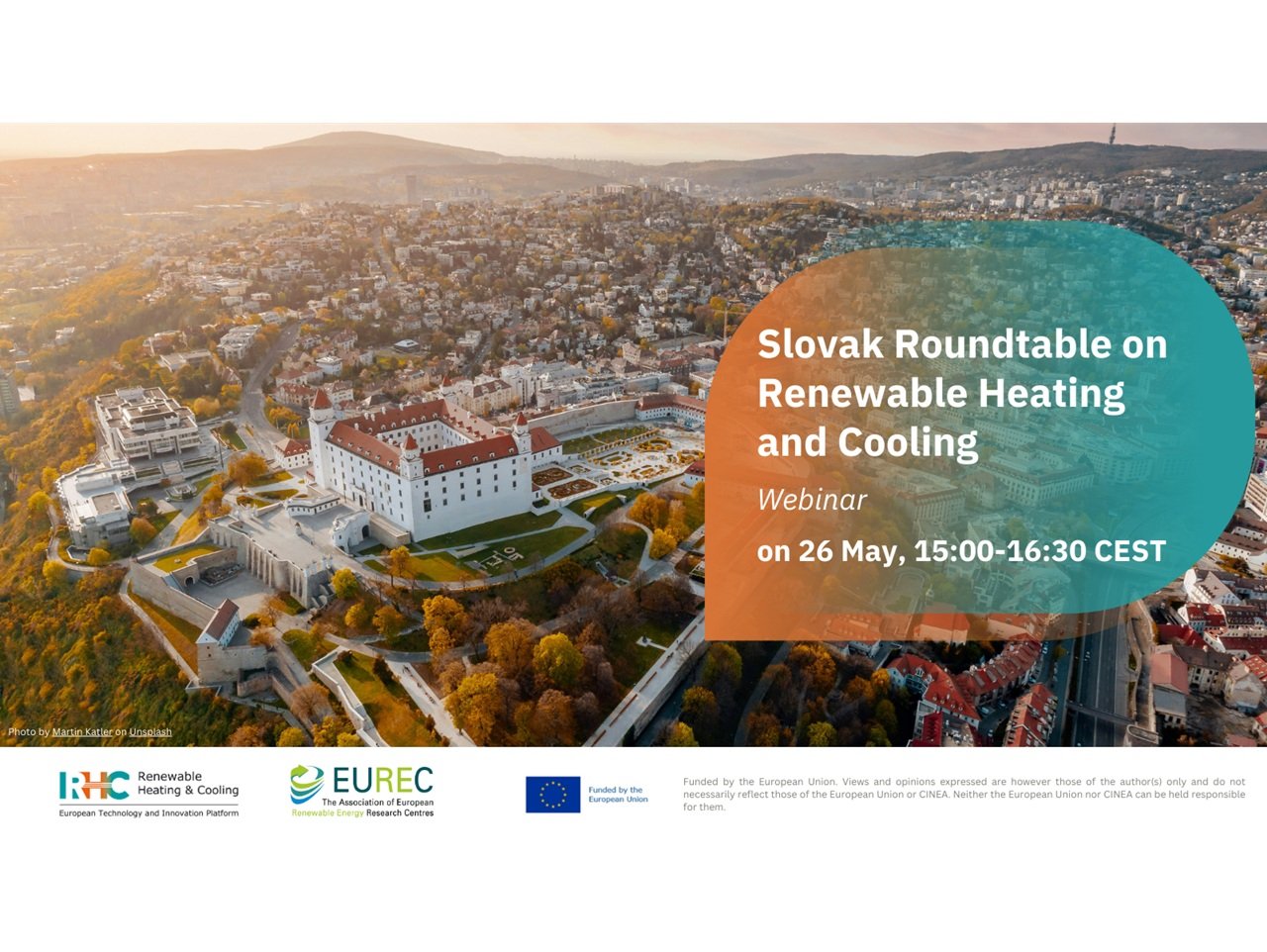Slovakia roundtable explores path to 100% renewable heating and cooling
A roundtable on 26 May 2025 gathered Slovak and international stakeholders to discuss strategies for achieving a fully renewable heating and cooling (H&C) sector in Slovakia. The event, titled Slovak Perspectives on 100% Renewable Heating & Cooling Transformation, was organized by the Renewable Heating and Cooling European Technology and Innovation Platform (RHC-ETIP) and EUREC, with support from EGEC, Solar Heat Europe (SHE), Euroheat & Power (EHP), the European Heat Pump Association (EHPA), and WIP Renewable Energies.
Participants reviewed Slovakia’s current renewable H&C landscape, examining the policy frameworks, financial tools, and technological options necessary to advance the sector. Topics included district heating, geothermal energy, biomass, and heat pump systems, alongside the role of municipalities, utilities, and citizens.
Decarbonizing district heating emerged as a top priority, with emphasis on integrating geothermal, waste heat, biomass, and heat pumps. The city of Partizánske was highlighted as a municipal leader in decarbonizing its heating network.
Discussions noted that electrification of heating and cooling remains challenging due to Slovakia’s high electricity-to-gas price ratio, recorded at 3:1 in 2024 for both residential and industrial users. While heat pump deployment saw an initial rise in 2022, sales have since declined, reflecting broader European trends. Speakers underlined the need for stable policy conditions and financial incentives for end users.
The roundtable also addressed the requirement for municipalities with populations under 50,000 to develop local heating and cooling plans. NGOs can assist these efforts, including through the use of a ten-point checklist to support sustainable planning.
